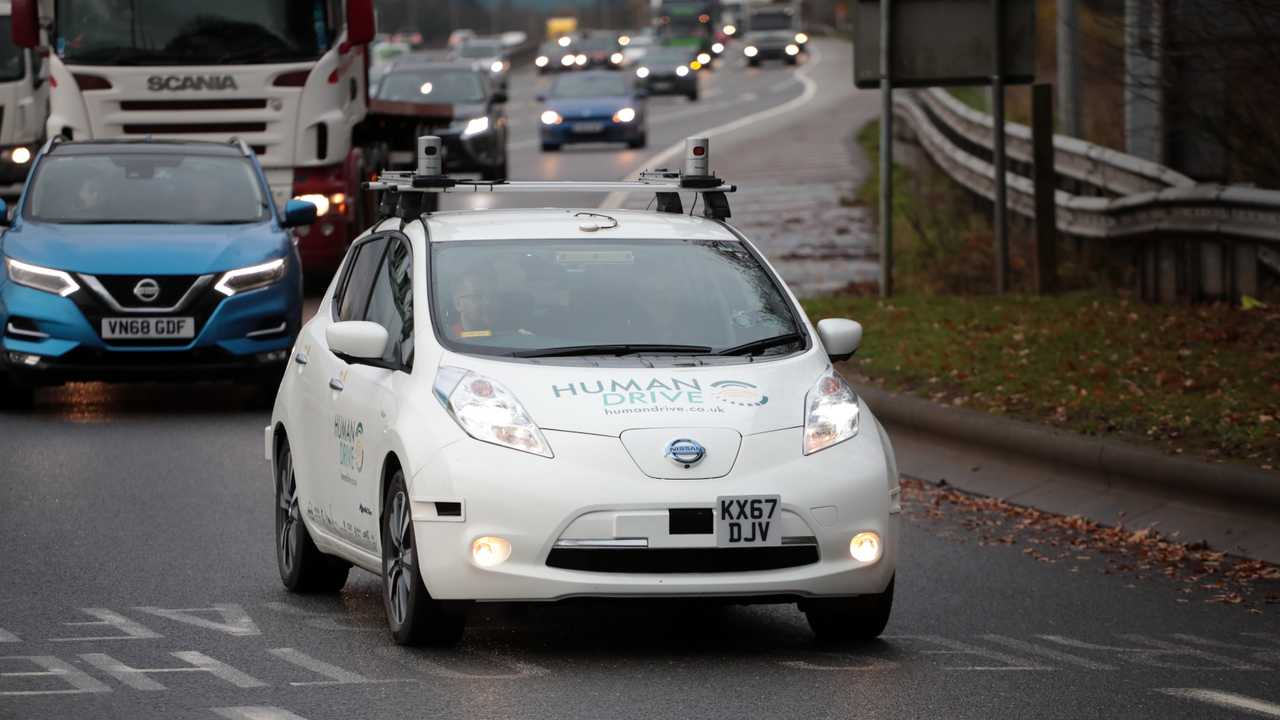A driverless Nissan Leaf has completed the longest unaided journey for an autonomous vehicle in the UK as part of a research project.
The 230-mile journey was for HumanDrive, a £13.5 million project jointly funded by the UK government through the Centre for Connected and Autonomous Vehicles (CCAV) and Innovate UK, and nine other consortium partners. The journey from Cranfield, Bedfordshire, to Sunderland was the result of 30 months of work between consortium partners and Nissan engineers.
“Safely completing the longest autonomous drive in Britain is an incredible achievement for Nissan and the HumanDrive consortium, and a huge step towards the rollout of driverless cars on UK streets,” said business minister Nadhim Zahawi.

“This project is a shining example of how the automotive industry, working with government, can drive forward technology to benefit people’s mobility – while helping to slash carbon emissions.”
To complete the task, the test car was fitted with GPS, radar, LIDAR and camera technologies that build up a perception of the world around it. Then, using that perceived world, the system was able to make decisions about how to navigate roads and obstacles on the journey.

As well as the landmark journey on roads, the trial also competed a run on a closed test track.
“The UK is fast becoming a leader in intelligent and automated vehicle and traffic management technology, a huge global sector set to create thousands of jobs,” said Future of Transport minister, George Freeman.
“Our Future of Mobility: Urban Strategy is supporting transport innovation for cleaner, greener and smarter transport, and Nissan’s successful HumanDrive project is an exciting example of how the next phase of the UK’s transport revolution could look.”
